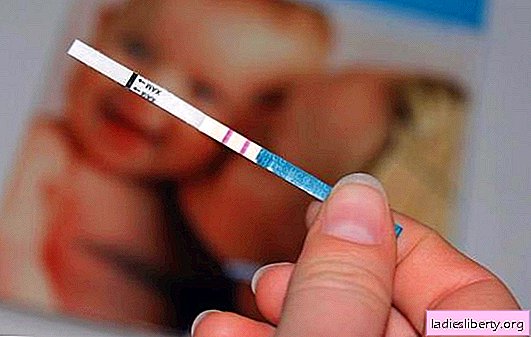
Diabetes mellitus is a serious disease in which many organs and all vessels suffer. At the same time, not only carbohydrate metabolism is disrupted, but due to a low-calorie diet and the constant intake of sugar-lowering drugs, the general metabolism in the body changes due to a deficiency of vitamins and minerals. Therefore, all patients, regardless of the type of diabetes, are prescribed vitamins and minerals.
Prescribing Vitamins for Diabetes - A Necessity
Vitamins for diabetes are in third place after diet, sugar-lowering drugs and necessary physical activity. Nevertheless, if you replenish all the vitamins that are lost in diabetes, the condition improves significantly. They play a large role in preventing complications of diabetes. With type 2 diabetes mellitus on insulin, they help to do without insulin, subject to strict adherence to the diet. The intake of vitamins for diabetes is especially important, given that even a healthy person does not receive the required amount with food. Nutrition does not fully cover the body's needs for vitamins and minerals. This is due to various reasons: economic, food quality, diets. And any diet, even well balanced, leads to hypovitaminosis. This may be a lack of one or more vitamins at a time.
The purpose of vitamins for diabetes is based on their deficiency in the body due to various losses associated with this particular disease (for example, polyuria - rapid and excessive urination, when vitamins are excreted in the urine) and taking into account damage to blood vessels and organs - targets.
Changes in the body are corrected by vitamins for diabetes
In diabetes mellitus, pathological changes occur in the vessels of the kidneys, lower extremities, in the retina, and diabetic polyneuropathy of the lower extremities develops. With errors in diet and non-compliance with medical measures, retinopathy, nephropathy, up to CRF (chronic renal failure), progress quickly, cataracts, osteoporosis develop, and the peripheral nervous system is affected.
Vitamins for diabetes are necessary due to the fact that retinopathy and cataract in patients develops quickly and progresses: in patients with diabetes, the frequency of blindness is 25 times higher than in its absence. This is the most common cause of disability.
In addition, with diabetes, the formation of a large number of aggressive free radicals that have a detrimental effect on healthy cells of the body. Therefore, vitamins for diabetes should be selected in such a way as not only to prevent and level these disorders, but also to maximize the general condition. Antioxidants can solve these problems: these are fat-soluble vitamins A, D, E, water-soluble C, as well as B vitamins. Trace elements are also necessary: manganese, zinc, calcium, selenium, manganese, chromium.
Retinol for diabetes
Vitamin A (retinol) is a powerful antioxidant that protects against the development of retinopathy and cataracts, and thus preserves vision. It prevents the cornea from drying out, supports color perception, and maintains the sharpness of the image. In addition, it activates tissue respiration, retains moisture in the upper layers of the skin, strengthens nails and hair. Retinol must be used in combination with other fat-soluble vitamins (D, E).
Ergocalciferol
Vitamin D is a group of vitamins, conventionally called calciferol. Being an antioxidant and participating in the exchange of calcium and magnesium, this vitamin is essential for diabetes. Improving the absorption of calcium, it prevents the development of osteoporosis or significantly reduces it. Two forms of calciferol represented by provitamins are especially important: D1 - ergocalciferol and D3 - cholecalciferol. The main function of these vitamins in diabetes is to participate in the proper development and growth of bones and muscles. It is cholecalciferol that improves the absorption of calcium, as well as cholesterol in the intestines and gall bladder. It also improves vision, the body's resistance to skin diseases, which are difficult to treat with high blood sugar. The effect is enhanced when taken together with calcium.
Vitamin C
Vitamin C inhibits oxidative processes in the lens, stops the formation of cataracts. Increases the body's resistance to oxygen hypoxia, increases the immune status. Improves the condition of the vascular walls. The maximum effect is achieved with the simultaneous use of tocopherol.
Group B Vitamins for Diabetes
Especially important is the use of vitamins of group B. These include 8 vitamins:
• B1 - thiamine;
• B2 - riboflavin;
• B3 - vitamin PP, nicotinic acid, niacin;
• B5 - pantothenic acid;
• B6 - pyridoxine;
• B7 - biotin;
• B9 - folic acid;
• B12 - cyanocobalamin.
They are essential for the body to absorb insulin and to restore impaired metabolism. Significantly improve carbohydrate metabolism. These vitamins are poorly absorbed when taking sugar-lowering drugs, but inhibit the progression of disorders in nerve cells and fibers. In addition, they help increase immunity, improve the functioning of the heart and blood vessels.
B1 takes part in the exchange of glucose inside the cell, affects its decrease, improves blood circulation in small vessels, and prevents the development of diabetic complications: nephropathy, retinopathy, neuropathy.
B2 protects the retina from ultraviolet rays, improves vision, the condition of the digestive tract mucosa, and participates in the formation of red blood cells.
B3 (PP) - nicotinic acid - dilates small vessels, improves peripheral blood circulation, participates in oxidative processes and in cholesterol metabolism. B5 - "anti-stress vitamin", stimulates the metabolism and nervous system.
B6th hypovitaminosis in diabetes improves the sensitivity of cells to insulin, the conductivity of nerve impulses along the fibers, and prevents the development of diabetic polyneuropathy.
B7 affects the reduction of blood sugar, has an insulin-like effect, participates in lipid metabolism and energy metabolism.
B9 takes part in the restoration and nutrition of damaged tissues, in the exchange of nucleic acids and proteins.
B12 well supports the nervous system, is involved in the metabolism of fats, proteins and carbohydrates. Improves appetite, memory, calms, reduces irritability.
Trace elements for diabetes
In diabetes, magnesium increases the sensitivity of receptors to insulin, relieves irritability, soothes, improves sleep. Well-proven drugs: Magne B6, Magvit, Magnelis, Magnikum. Vitamin B6 enhances the beneficial properties of magnesium.
Chromium is one of the most important trace elements necessary for diabetes. He is directly involved in the synthesis of the active form of insulin, reduces insulin resistance, craving for sweets.
Manganese affects the activity of enzymes involved in the formation of insulin.
Zinc stimulates the formation of an insulin molecule and prevents infectious complications, improving the barrier functions of the skin.
All vitamins for diabetes are effectively taken in combination with trace elements. In such multivitamins, the doses and combinations of components that improve their absorption are balanced. They are convenient and effective in use. Such complex preparations include:
• Alphabet Diabetes, containing 13 vitamins, 9 trace elements, plant components;
• Complies with Diabetes;
• Complivit Calcium D3 forte;
• Vitrum Calcium D3.
Vitamin therapy is one of the methods of treating diabetes, which is an addition to hypoglycemic drugs. It is prescribed exclusively by a doctor: self-medication is dangerous due to a possible overdose with severe complications. The systematic intake of complex vitamins according to the scheme prescribed by the endocrinologist leads to a decrease in complications of diabetes.











